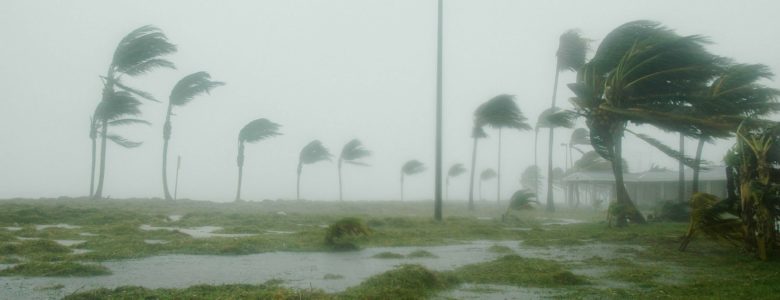Plan for the Best, Prepare for the Worst: The Path of Hurricane Irma
By: Kelley Atkinson, Director of Conference Services
Most words spoken in French sound beautiful, right? “Je t’aime,” “pâtisserie au chocolat,” “force majeure” – ok, maybe not. Force majeure is anything but beautiful – from the wildfires burning along the West Coast to the Category 3-5 hurricanes making landfall across the Gulf of Mexico and East Coast – force majeure is messy and leaves a path of destruction to clean up, literally and figuratively. In my 10 years of meeting and event planning, for the first time in my career I am experiencing what it means to put event cancellation insurance to use due to force majeure – Hurricane Irma on the East Coast to be specific. The experience has opened my eyes to what it really means to be prepared for the worst and plan for the best.
Making the Decision
Picture this: hotel rooms, flights and rental cars have been booked. Badges and tickets have been printed and supplies are packed. Materials have been shipped to the venue and the decorator’s first truck has arrived in Savannah with two more trucks on the way. These meeting details and so many more have taken place. All the while, a client’s international conference – four years in the making – is sitting in the direct path of Hurricane Irma.
Two days prior to leaving for Georgia’s coast, the meeting’s stakeholders – legal, hosts, staff, attendees, exhibitors, sponsors, and the venue – want to know the plan. The possibility that this meeting isn’t going to happen is becoming a very quick reality. Suddenly four years of planning come to a screeching halt. In order to keep everyone safe, the official decision to cancel is made. Shortly thereafter, the Governor of Georgia issues a state of emergency and mandatory evacuation of several coastal counties. In our case, had we not made the decision to cancel, the decision would have been made for us.
Get the Word Out
With the decision being made just two days before the conference, it is crunch time to get the announcement out. A handful of international attendees are already in Savannah and we have just enough time to get them out and keep others from boarding their flights. Calls and emails are sent to the City of Savannah and hotels letting them know our decision to cancel citing force majeure. After the hotels are taken care of, attendees receive an email and marketing e-blast with the announcement. The conference website is also immediately updated.
Post-Cancellation Clean-up
Once the dust of initial cancellation began to settle, it was important that the hosts, meeting planners and legal to meet face to face and discuss next steps. The client knew nearly immediately that it would not reschedule the meeting. While this isn’t always the case for other meetings affected by force majeure, rescheduling would bring a completely different set of tasks to the table. In our case, contact with the event cancellation insurance company was top priority, next to getting legal involved to make sure everyone stayed within the boundary of policies, expectations and legal requirements. Making a list of all sources of revenue, expenses and projected expenses would come next. Who can we afford to refund in full immediately and who will need to wait until event cancellation funds have been received? Then comes the public announcement of refunds and daily question of when refunds can be expected.
The force majeure process will take time and can be difficult. It certainly doesn’t happen overnight. While I hope to never go through event cancellation again, for the sake of the client, I do value the experience that I have gained (and continue to gain) from going through this process. I have realized the importance of having event cancellation insurance (even if you never use it), putting everything in writing, and having a plan for communication. I hope these takeaways will also help you prepare for the worst and plan for the best.


